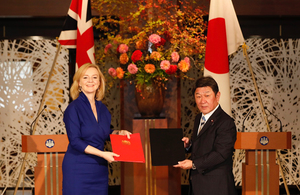A government-led project is successfully detecting traces of coronavirus in sewerage, providing an early warning for local outbreaks across the country and sharing data with NHS Test and Trace.
The programme, which was first announced in June, has now proven that fragments of genetic material from the virus can be detected in wastewater. This can then indicate where a local community or an institution is experiencing a spike in cases.
The results can provide local health professionals with a clearer picture of infection rates by identifying where there are high numbers, particularly for asymptomatic carriers and before people start showing symptoms. This will allow local authorities to take early action to slow the spread of the virus.
The data will be shared with NHS Test and Trace and inform where new outbreaks may be happening. It means that public health professionals can speak directly to institutions where there may be spikes in infection. Those institutions can in turn can encourage people to get tested or take extra precautions.
The project has already worked successfully in an area in the South West of England, where sewage sampling data showed a spike in coronavirus material despite relatively low numbers of people seeking tests.
This was passed on to NHS Test and Trace and the local council, who were able to alert local health professionals to the increased risk and contact people in the area to warn of the increase in cases.
Testing has now been rolled out across more than 90 wastewater treatment sites in the UK, covering approximately 22 per cent of the population in England, with plans to expand in the future.
Defra, the Environment Agency and Joint Biosecurity Centre (JBC) are collaborating on the English programme and chairing a UK-wide group to ensure coordination between Scottish Government, Welsh Government and academic projects. The testing is being led by the Environment Agency’s Starcross laboratory in Exeter.
The JBC is also conducting pilots to test how this approach can generate targeted scientific intelligence to help health authorities make future decisions, including assessing how precisely wastewater can be used to identify coronavirus sources.
Environment Secretary George Eustice said:
This is a significant step forward in giving us a clearer idea of infection rates both nationally and locally, particularly in areas where there may be large numbers of people who aren’t showing any symptoms and therefore aren’t seeking tests.
NHS Test and Trace is able to use the science to ensure local health leads are alerted and can take action.
We are continuing to look at how this programme can be refined as one of the many measures we’re using to slow the spread of the virus and protect local communities.
Health and Social Care Secretary Matt Hancock said:
This initiative is just one example of how we are working across government and with local partners to find innovative, new ways to track the outbreak, slow the spread of the virus and save lives.
Monitoring and sampling wastewater offers another tool to help us identify outbreaks early on – helping NHS Test and Trace and local authorities target hotspots quickly and effectively.
As we see an increase in cases across the country, it remains vitally important that everyone continues to follow Hands, Face and Space, gets a test and self-isolates if they display any Covid-19 symptoms and follows the advice of NHS Test and Trace.
Separate work carried out by the National Institute for Biological Standards and Control (NIBSC) also identified coronavirus material in London sewage in February, before any COVID-19 cases were recorded in this area, providing further evidence of the effectiveness of wastewater monitoring to detect infection rates. High levels of virus material were detected in March and April followed by a considerable decrease in May and June, reflecting the impact of national lockdown measures on virus transmission.
The World Health Organization is clear that the likelihood of coronavirus being transmitted via sewerage systems is extremely low or negligible.
Emma Howard Boyd, Chair of the Environment Agency, said:
Sewage is a rich source of information about community health. I recently visited Starcross laboratory and saw the testing, monitoring and analysis carried out by the Environment Agency’s wastewater experts.
I was inspired by their collaborative approach with academics, industry, government to help provide an early warning system for local coronavirus outbreaks.
Dr Davey Jones, Professor of Soil & Environmental Science at Bangor University, said:
We have been monitoring viruses like Norovirus and Hepatitis in human sewage for the last decade, as part of a programme to evaluate levels of these viruses in the community. We added COVID-19 to the surveillance list in March this year.
We showed that viral levels in wastewater mapped really well onto the success of lockdown measures in the first COVID-19 wave and to the emergence of the second wave. We are now using it to track the emergence and control of COVID-19 cases and working on new pilots to map the virus at both the local and the regional scale.
Professor Dame Ottoline Leyser, Chief Executive of UK Research and Innovation, said:
This research shows that our wastewater system can be used to identify coronavirus hotspots early, which could significantly help our ability to contain local outbreaks.
The project is an excellent example of how UKRI can work collaboratively to harness the strength of the UK research and innovation system to address rapidly emerging challenges.
